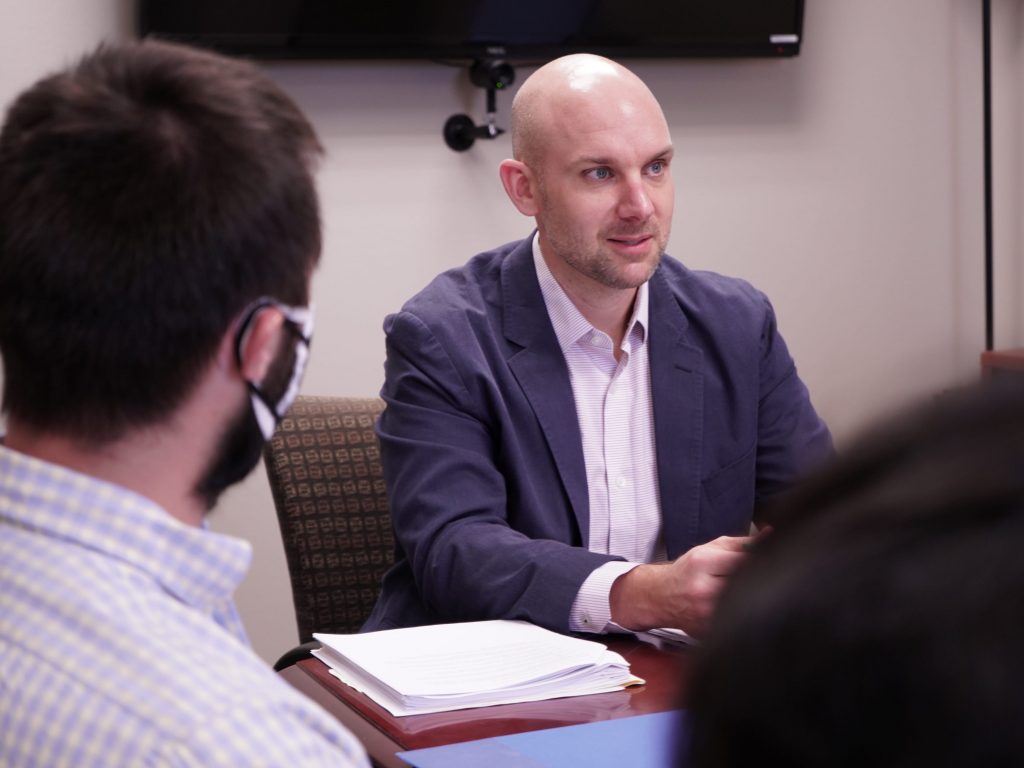- The academic who coined the phrase "The Great Resignation" said he regrets how he quit a past job.
- Anthony Klotz also discussed how some quitters experience "great regret" during a podcast talk.
- Loyalty, viable alternatives and whether you have a voice are three things to consider, he believes.
The academic who coined the much-used phrase "The Great Resignation" has a message for anyone thinking of joining the ranks of mass quitters: don't live to regret it.
During a recent appearance on a special episode of the podcast "Worklife with Adam Grant" for TED Business, Anthony Klotz, associate professor of management at Texas A&M, discussed how many of the 47 million Americans who quit their jobs last year have grown to regret their decision.
"All of a sudden the things, the reasons that you're leaving sort of melt away once you resign," Klotz said. He discussed his own regret about an incident earlier in his career. This occurred when he quit his job at a lumber yard because he and his best friend both wanted to take vacation but were not allowed.
"Because we were in our busy season and both of us just looked at each other and we both quit at the same time. And that's always stood out to me as something that I'm not proud of," Klotz said.
Klotz, who has researched the phenomenon of quitting for years, rose to fame after an interview with Bloomberg reporter Arianne Cohen in May 2021. He predicted there would be a "great resignation" in the US, following the pandemic.
Deciding to quit is tough but it's even more difficult to figure out how to quit, he said. "Once you've made that decision to leave, there's no guidebook and because it's secretive, there are a lot of people that you can't talk to about it," he said.
Luckily Klotz and host Grant, an organizational psychologist, laid out their own frame of things to consider before jumping ship.
Are you able to have a say in how to improve the situation?
The first thing to consider is "do you have a voice?" said Grant. If you're leaving because you don't like 20% of your job, bring that 20% up with your manager or HR, Klotz said.
"Is there a way that I can improve this rather than going to another organization where you get rid of the 20% of your job that you don't like, and you get over to that company. And you're like, ah, they don't have that problem. They've just got these five other problems that I didn't consider," Klotz said.
How much do you care about the company?
If you don't have a voice, the next question is loyalty, Grant said.
"How much do you care about the organization's mission and the people? Is the purpose aligned with your core values? And are you committed to the colleagues you'd leave behind?" he said.
Do you have another viable option lined up?
If the answer is no, it's time to consider the third question, said Grant: "Do you have compelling alternatives?" Is there a great mentor, learning opportunity, or culture drawing you in?
Klotz said that alternatives may be more readily available than at times in the past because there are lots of opportunities to make money online.
"It does feel like right now, the bar for the attractiveness of the pull to get me to quit is a little bit lower than it used to be in the past. And that makes sense because there are far more options for how to make a living now than there have been, probably ever," he said.
The fluid labor market shows no signs of slowing down
The reshuffle surging through corporate America shows no signs of fizzling out. A series-high 4.5 million Americans said "I quit" in March 2022, according to the latest data from the Jobs Openings and Labor Turnover survey from the Bureau of Labor statistics.
In April, Klotz predicted that quit rates could remain high for another two to three years, before caveating that by highlighting that he's not an economist. These changes are here to stay, he told CNBC in May.
"Because these work arrangements give us more flexibility and control over our lives, and more autonomy and freedom in how we structure our lives, I don't think most people are willing to go back to a traditional work environment," he said.
Klotz himself is due to leave his role at Texas A&M to join University College London, according to the Financial Times.

